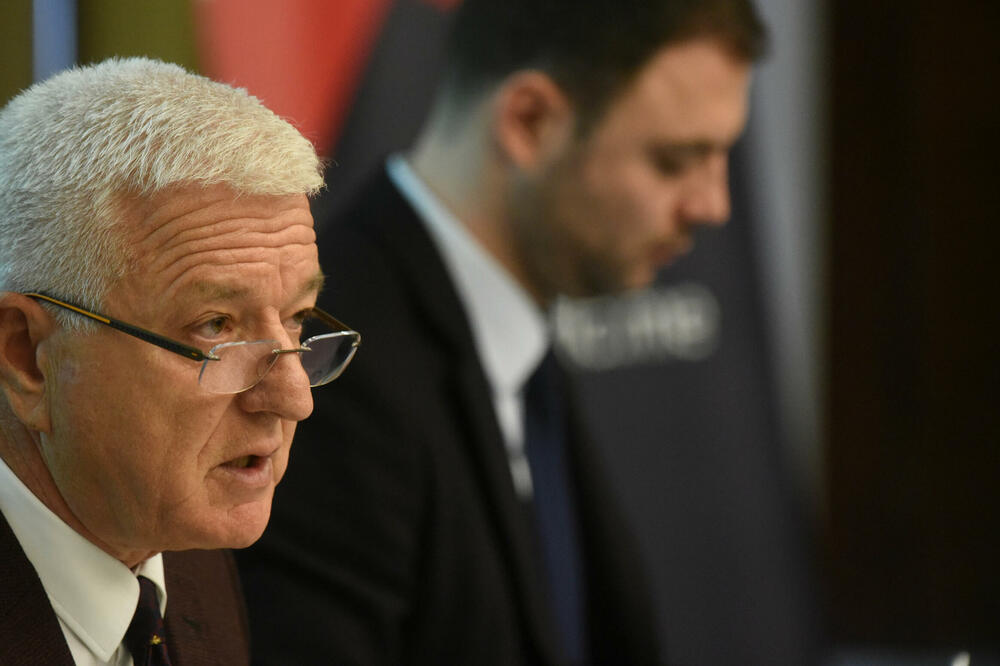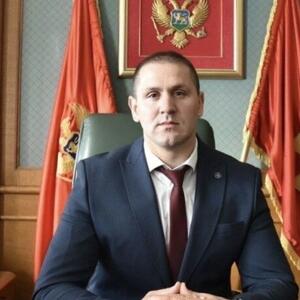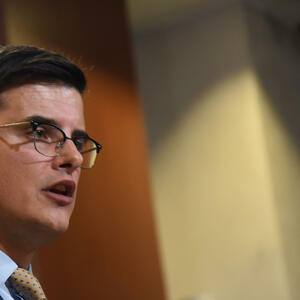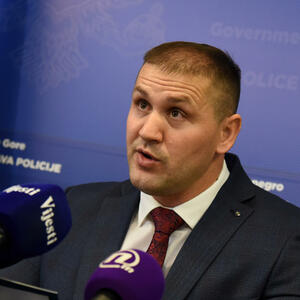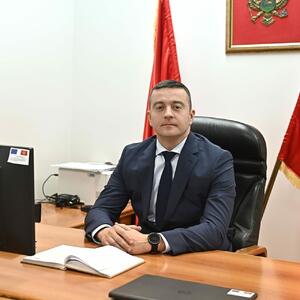The formal and informal power of the police director is enormous, he actually manages the entire apparatus, is at the source of all information and can hardly remain neutral in relation to the relevant minister - a politician. The election for the head of that institution should be viewed through that prism, and not as a struggle for the professionalization of that security service.
This is how the interlocutors of Vijesti assessed the current conflict between the ruling Europe Now Movement and the Democrats over the chair of the first police officer of Montenegro.
"If we lived in a normal political and social environment, the appointment of the director of the Police Directorate would have passed like any other that reaches the Government's agenda, however, it turned into a political struggle for supremacy over the police, which will have far-reaching negative consequences on the professional potential and security institutions," the former prime minister told Vijesta Dusko Markovic.
The crisis over that issue has practically lasted since December, because both political groups remained in the same positions and did not want to give up "their" candidates. The conflict escalated at the recent tense session of the Government... The victory was seemingly won by the Prime Minister Milojko Spajic and PES ministers, because it is "theirs" Aleksandar Radovic was elected acting chief of police by a majority of votes.
The Democrats said that because of what they called the illegal appointment, they will not leave the Government for the time being, stating that the country's European path is more important than political fights, which is why they have postponed the government's support until the goals set in the reform of judicial and security institutions are met. ..
Answering questions about the importance of the director's function and his essential strength that this position gives him, Marković told Vijestima that the first man of the UP is undeniably an important link in the coordination of the fight against crime, as well as the preservation of public order, peace and security.
"Our Law gives the director of the Police Administration the role of the main police functionary who is even the bearer of police powers. If we lived in a normal political and social environment, it would be an appointment like any other that reaches the Government's agenda. However, it is clear that for the fourth year in a row we are witnessing disorder in the most important and vital sectors for the state and citizens. "Although the Government had no choice but to appoint an acting candidate from the list of candidates supported by the majority of ministers, it all turned into a political struggle for supremacy over the police, which will have far-reaching negative consequences on its professional potential," he said.
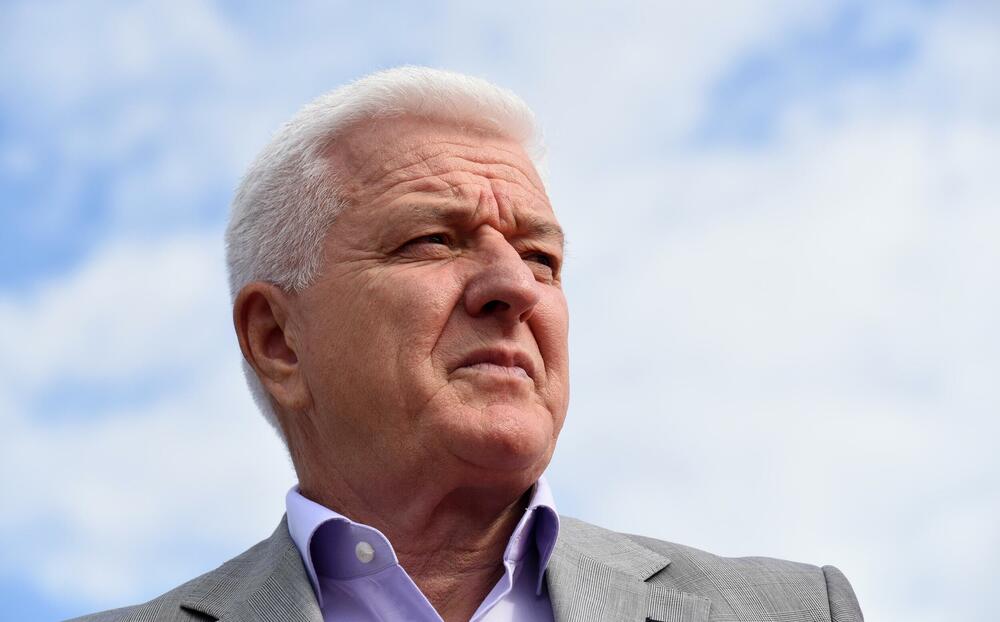
Former assistant director Radović was elected as the temporary chief of police at a turbulent, marathon session of the executive power, which began on the 12th and ended a few hours after midnight on the 13th of March.
The government initially refused to support the Interior Minister's proposal Danilo Saranovic - to be elected to that position Lazar Scepanovic, who, as written in the nomination proposal, is one of the two candidates who passed a polygraph test on questions about ties to political parties and organized crime...
Commenting on the polygraph test of the candidates, the former prime minister and coordinator of the work of the Ministry of Interior, said that it is a completely justified question whether the minister of the interior examined all the officials he appointed in recent months in the same way.
"Finally, we are quite justified in wondering if the minister polygraph tested all those powerful officials whom he promoted in the media and appointed to senior positions four months ago. In that, you can probably find part of the answer to the many questions that burden the police organization today," said Marković.
Radović was voted on at the Prime Minister's proposal, after the Government had previously adopted by a majority of votes the conclusion authorizing him to propose the Acting Director of the Police, although this has no basis in the Law on Internal Affairs.
The law stipulates that the acting police director is proposed by the Minister of Internal Affairs.
The long-time head of the National Security Agency (ANB) emphasizes that the law is clear in the area of police competence, i.e. the fact that the police is operationally independent and neutral from every segment of the state government.
"The Minister of Internal Affairs is neither a holder nor a link in the police nomenclature, and it would be useful if every minister behaved as such, adhering to the competences defined by the Constitution and the law. At the same time, I don't know where such a political cramp from the current government comes from - from whose list or list will the director of the police come. This amount of institutional nervousness and upheaval brings the most damage to the police organization, but also to the candidates who applied for that unusual public call for acting director, which started the devastation of the director's office, but also of the institution itself. This was then continued with the offer or rather the condition of polygraph testing, which completely compromised the entire process. In this sense - I expected and am waiting for one of the experienced police officers and elders to raise a voice of professional and personal dignity against the unsystematic and unprofessional attitude towards the police profession", said Marković.
The law is one...
"It's a political fight," said the director of Action for Social Justice (ASP). Ines Mrdovic, answering the questions of the News about the conflict in the Government regarding the appointment of the director of UP.
He says, however, that first it is necessary to change the regulations, if the state wants a professional in that position.
"If you want to get a brutal professional at the head of the police, then you should first change the law, exclude the discriminatory provision from the existing law on who (only) can run for office, fill in the legal 'gaps' in the law (e.g. in the election of the acting police director), which will make it impossible for you to interpret the law as you see fit, and only then announce a public competition. It is not possible to reach a professional at the head of the police based on the DPS law. By changing the law, you can open up the possibility for professionals to come in and lay the initial foundations for real professionalization, which will take serious time. Then you will show that your goal is the well-being of the police, and thus the well-being of the citizens. Everything else is knocking on the 'cemented' party door", she said.
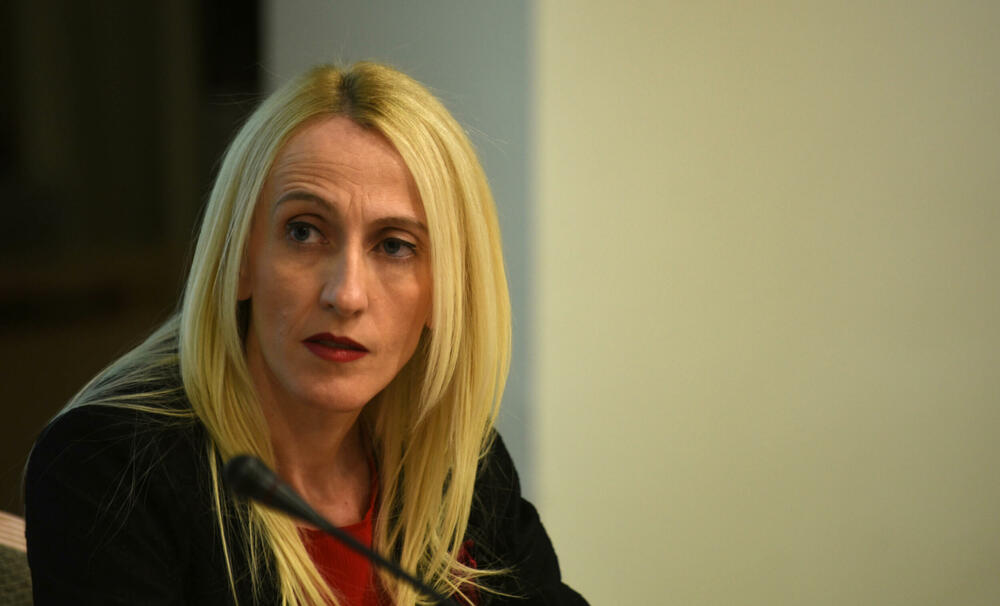
Based on the Law on Internal Affairs, the Director is responsible for his work to the Minister and the Government, and that act also defines that the UP is politically and ideologically neutral in its work.
Also, only the first police officer is allowed to "raise" special units, with the minister having the authority to revoke their use.
The Chief of Police, based on a public competition, is appointed by the Government at the proposal of the Minister. It says that this person cannot be a member of a political party, nor act as a party at the time of running for office, nor for five years before submitting the candidacy.
In the event that the police director's mandate ends before the expiration of the time, the Government will, on the proposal of the minister, appoint one of the managers of the internal organizational unit of the police, who meets the requirements, as acting officer.
Mrdović explains that this place is important for the overall police organization, reminding that the primary task of that service is to provide security to citizens and protect them from crime.
"Besides the domestic context of the fight against crime, it is also important because of cooperation with international police authorities. This has particularly 'surfaced' and gained importance recently due to the thirty published cases of the networking of police and criminal structures, and the fact that certain criminal groups, extremely powerful outside the local framework, arose/originated in this area," she said. .
Speaking about the "real weight" of the first police officer and his strength in relation to the line minister, Mrdović noted that his operational power is great, because he is at the head of the entire organization...
"He manages it, he is in possession of all the information... On the other hand, the law guarantees that the police are politically and ideologically neutral in their work, but the question is how much in practice the director of the police can achieve neutrality in relation to the minister (as a politician), due to control mechanisms that exist (he must submit special reports to the minister, the minister can revoke the use of special units), which can all result in the other extreme - that the director shows excessive obedience to the minister".
Even during the three-decade rule of the Democratic Party of Socialists, but also after August 2020, there is almost no opposition party whose officials did not accuse the first man of the Police Administration of putting himself at the service of the party or parties in power.
That was also the case when they were managing the police apparatus Bozidar Vuksanovic, Slavko Stojanovic, Veselin Veljović, Zoran Brđanin, Nikola Terzic...
Mrdović therefore pointed out that in any democratic society, that position would be strictly professional.
"However, in Montenegrin circumstances, police directors have been at the service of party interests for years, while on the other hand, organized crime was 'flourishing' and many police officials were at his service and opened doors for him, instead of fighting against him. The reasons for existing problems should be sought in this. "Also, in the last two to three years, one gets the impression that the struggle for political supremacy over the police is a way for whoever manages the country to 'show off' the results of the fight against crime for political benefits, but also for mutual political calculations," she stated. Director of ASP.
Bonus video:



